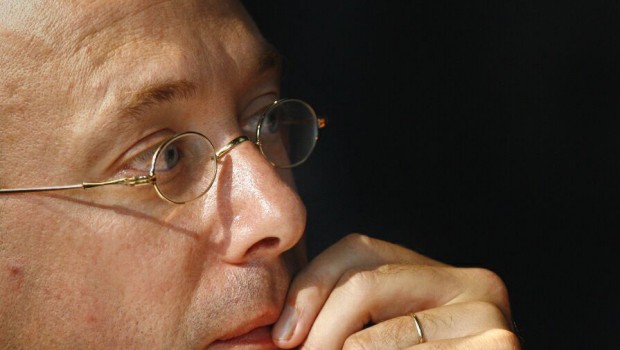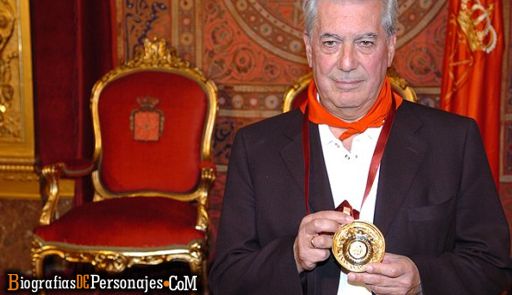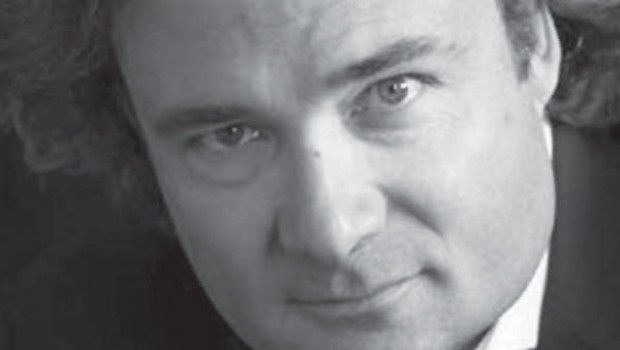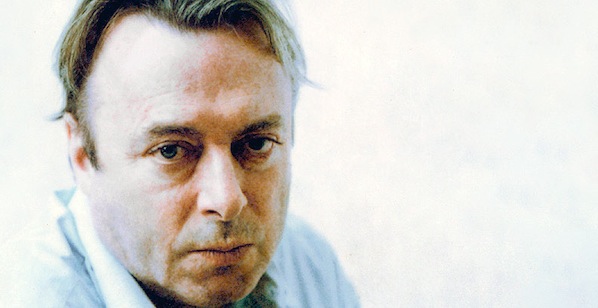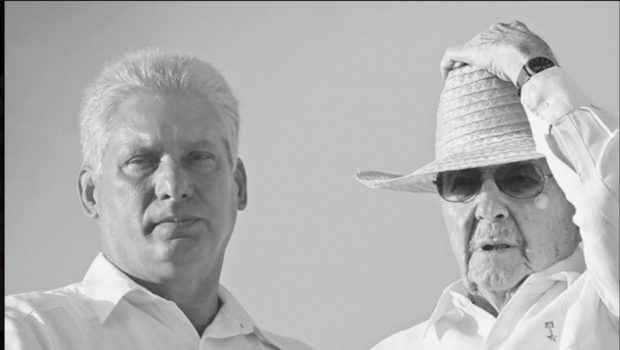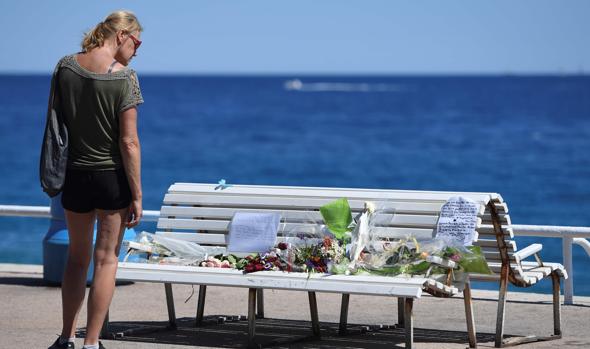How Do We Change The World? A Conversation with Rob Riemen
¿Cómo cambiar el mundo? Una conversación con Rob Riemen
Rose Mary Salum
Toward the end of 2012, the Nexus Instituut organized a series of conferences where prominent international speakers discussed the question How To Change the World? Due to the importance of this symposium, we have included a conversation between Rob Riemen and Rose Mary Salum. In addition, we have also been authorized by the Nexus Instituut to reproduce some of the interviews conducted by Fiona Schouten and Eveline van der Ham.
* * *
Rose Mary Salum: What circumstances moved you to organize such an intellectual enterprise?
Rob Riemen: The essence of a civilized society is justice and the cultivation of human dignity. Without these, a society will eventually fall apart, and the worst of human instincts will prevail. But a ‘just society’ and the dignity of man are never a given. Every society, every age, every individual has to strive for it and deal with all those powers and human forces which are not interested in (or are even against) a society where justice for everybody and human dignity prevails. So yes, there is and will always be a need to change our world and it is a moral obligation to be aware of it. I organized this conference as I am interested in knowing which visions we have for a better world and who the change-makers will be.
RMS: The keynote speaker was Alain Badiu. He mentioned in his opening speech that philosophers need to be optimistic in order to at least conceive ways to change the world. On the other hand, Roger Scruton believes that the 20th century was created by idealism and a fixed concept of what the world should look like. This gave us permission to radically change it, and the immediate results were genocides, wars and so on. Did you maintain a balance between these conferences to sort of neutralize the idealism inserted in the idea of how to change the world?
RR: Badiou and Scruton are two philosophers with two opposing worldviews. Badiou is a man from the left, he has been a Maoist. Scruton is a man from the right, a true conservative. We know now about the horror, wars and genocide that were the result of political utopian ideas and their “social engineering”. On the other hand, political conservatives are too often not really interested in changing the world, as they want to defend the existing economic and political interests of the “happy few.” So inequality, poverty, injustice are here to stay. Which leads to the fundamental question of how to change the world. What are our possibilities? What are the instruments? Where to start? After the epoch of totalitarianism, we know that only a liberal democracy gives us the possibility to make the world a better place. Yet what we also know is that “liberal democracy,” with its party politics, mass media, and the reign of “public opinion,” is not enough.
RMS: On the other hand, you cannot change the world as such, Agnes Heller explained. She also warned us about totalitarian governments because, according to her, they can be as trendy as democracy is. What is your opinion regarding her statement?
RR: What is the “world”? The world is what WE are! It’s all human beings together. You and I and our fellow human beings. We create the world, with our ideas, science, technology, politics, religions etc. If there is war, it is because people go to war; if there is poverty, it is because we don’t distribute wealth in a just manner; if there is ignorance, it is because we don’t educate or are not interested in education; if there is no freedom, it is because we have given our freedom away… This is why liberal democracy is always superior to any political ideology that claims to be ‘perfect’: in a liberal democracy, every human being has the political freedom to use this freedom to make this world a better place.
RMS: John Gray spoke, among other things, about how the universal “We” is nonexistent and what really needs to be changed is the belief system. Seeing as how you are such an optimist, what is your opinion of this?
RR: Again, every belief is there because people have faith in it…. And yes, people can have faith in anything or anybody. Monsters like Hitler and Stalin could only do their destructive work because millions of people believed them. And millions of people truly believe in science as a new religion that will redeem them and society of all evils, but capitalism is also a faith…. What all these belief systems have in common is that they demand that the believers give up their own freedom and critical thinking. Worse yet, these belief systems do not demand that we change our lives, instead they promise us a kind of ‘feel-good’ concerning the way we are. If a belief doesn’t make us more free and help us to achieve the dignity of life, it is nothing but a form of idolatry.
RMS: He also reflected on the need to redefine freedom. Can that be possible when nowadays, neuroscience is almost denying it?
RR: There are indeed neuroscientists who are hardcore materialists and who reduce “freedom” to what happens in our brain. They deny freedom –and with it morality, consciousness; in short, the dignity of man. Which, according to my definition, turns this neuroscience into an ideology and idolatry.
RMS: How can we change the world, when the commercial world is demanding one thing from us, and the world of ideas, something completely different? I guess what I’m referring to is the complete trivialization of the world and its materialism. This has kept us from reflecting on ideas and humanism in the 21st century.
RR: We are free to choose! In a free society, there is no rule that we have to comply with the demands of the commercial world. We don’t have to buy or watch their stuff. We can choose to make our lives meaningful. We can. But too many people do not. Why? Because it would mean choosing what is difficult, accepting responsibility for your own life. Quite often, it is a choice for a life in solitude, for the acceptance of the tragic sense, for self-cultivation, and to try to make spiritual values your own. That is the opposite of the easy life, and it is a life that, especially for young people, is very difficult due to the collapse of our education and cultural infrastructure (the bookshops are gone, for example); and with social pressure to be the same as everybody, it is very, very hard to mature as a free person of character. Yet it remains possible, and the reward of being a free man or woman and having the presence of meaning in your life is endlessly more rewarding than the cultivation of commercial nothingness.
RMS: At one point during the symposium, you posed the question to your panel: “What do you see as scandalous in contemporary society?” And I wondered, what is scandalous to you?
RR: There are many scandals, but the greatest scandal in rich Western society is the destruction of education and culture by the ruling class: the organized stupidity. And of course, that is in the interest of the ruling class, as which products would still be bought, which programs still watched on television, which politicians would still be elected if people were just a little bit more wise?
RMS: You once told me: “We have given up the notion that there are universal values. These are all complex things, and they have political consequences.” Was this round of conferences intended to recover those universal values?
RR: With the Nexus Instituut (and a Nexus Academy and Nexus Bookshop to come) I want to create a space where the tradition of European humanism is kept alive and transmitted to anybody who realizes that without universal spiritual values and the great cultural legacy that makes us aware of these values, there cannot be a civilized society in which everybody has the possibility to live his life in truth, to do justice, and to create beauty. And as long as I have the energy and the means to continue this work, I’ll do it as my modest contribution to “changing the world”. As I just mentioned, alongside the continuation of the public activities of the Nexus Instituut and the publication of my essay series in our journal, Nexus, I am working to create a Nexus Academy to educate international students in liberal arts and to have a Nexus Booskhop where “the best that has been thought and written” will be available. And yes, after publishing Nobility of Spirit, I am working on a new book as well.
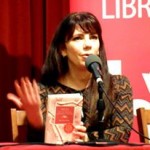 Rose Mary Salum is the founder and director of Literal, Latin American Voices. She´s the author of Delta de las arenas, cuentos árabes, cuentos judíos (Literal Publishing, 2013) among other titles.
Rose Mary Salum is the founder and director of Literal, Latin American Voices. She´s the author of Delta de las arenas, cuentos árabes, cuentos judíos (Literal Publishing, 2013) among other titles.
A finales de 2012, el Nexus Instituut organizó una serie de conferencias en las que destacados ponentes internacionales discutieron en torno a un tema: ¿Cómo cambiar el mundo? Debido a la importancia de este simposio, publicamos a continuación una conversación entre Rob Riemen y Rose Mary Salum. Asimismo, con la autorización del Nexus Instituut reproducimos también en estas páginas algunas entrevistas realizadas por Fiona Schouten y Eveline van der Ham a algunos de los participantes.
* * *
Rose Mary Salum: ¿Qué circunstancias te llevaron a convocar a esta empresa intelectual?
Rob Riemen: La esencia de una sociedad civilizada es la justicia y el cultivo de la dignidad humana; sin ello, la sociedad se desmoronaría, prevaleciendo lo peor de los instintos humanos. Pero una “sociedad justa” y la dignidad del hombre nunca son gratuitas. Cada sociedad, cada época y cada individuo debe tener en cuenta esto y lidiar con poderes y fuerzas que no están interesados (o incluso están en contra) de una sociedad en donde prevalezcan para todos la justicia y la dignidad humana. Por lo mismo, creo que sí existe –y siempre habrá– la necesidad de cambiar nuestro entorno. Es una obligación moral estar consciente de ello. Organicé estas conferencias porque estoy interesado en conocer qué visiones y expectativas tenemos para el futuro y quiénes serán los actores que cambien al mundo.
RMS: La conferencia magistral fue impartida por Alain Badiu. En su discurso de apertura habló sobre la necesidad de que los filósofos sean optimistas para, al menos, concebir la mejor manera de transformar el mundo. Sin embargo, Roger Scruton piensa que el siglo XX fue determinado por este tipo de idealismo y el concepto correspondiente sobre cómo modificar nuestras circunstancias. Esto legitimó el cambio radical y el resultado inmediato fueron los genocidios, las guerras y otras catástrofes. ¿Cómo equilibraste la organización de las conferencias para matizar la dosis de idealismo implícito en la idea de cambiar al mundo?
RR: Badiou y Scruton son filósofos con visiones antagónicas. El primero es un pensador de izquierda que ha sido maoísta; Scruton, en contraste, es un hombre de derecha, un auténtico conservador. Ahora reconocemos el horror, la guerra y los genocidios como consecuencia de la “ingeniería social” característica de las utopías políticas. Por su lado, el conservadurismo político no parece interesado en cambiar el mundo porque busca defender los intereses económicos y políticos de la actualidad –con sus pocos beneficiados. Desde esta perspectiva, la desigualdad, la pobreza y la injusticia han llegado para quedarse. Eso nos coloca ante la pregunta fundamental: ¿cómo transformar el mundo? ¿Cuáles son nuestras posibilidades? ¿Con qué instrumentos contamos? ¿Por dónde empezar? Tras la era de los totalitarismos sabemos que sólo la democracia liberal nos brinda la oportunidad de hacer del mundo un mejor lugar. Aunque también sabemos que la democracia liberal –con sus partidos políticos, sus medios de comunicación y el reino de la opinión pública– no es suficiente.
RMS: Según Agnes Heller, en el proyecto de cambiar el mundo los totalitarismos aún pueden ser tentadores como la democracia misma. ¿Qué opinas al respecto?
RR: ¿Qué es el “mundo”? ¡El mundo somos nosotros! Todos los humanos juntos. Tú y yo somos seres humanos y creamos el mundo con nuestras ideas, nuestras ciencias, tecnologías, políticas, religiones, etc. Si hay guerras es porque la gente va a la guerra; si hay pobreza es porque no distribuimos la riqueza de una forma justa; si hay ignorancia es porque no educamos o no estamos interesados en la educación; si no hay libertad es porque la hemos dejado ir. Es por ello que la democracia liberal siempre aventajará a cualquier ideología política que busque su propia perfección: en ella cada ser humano tiene la libertad política de usar su libre albedrío para hacer de éste un lugar mejor.
RMS: John Gray sostiene, entre otras cosas, que el universal “nosotros” no existe y, por lo mismo, lo que debemos cambiar realmente es este tipo de creencias. Siendo tú tan optimista, ¿cuál es tu opinión al respecto?
RR: De nuevo, cada creencia o credo existe porque hay gente para ello. Y sí, uno puede tener fe en lo que sea o en cualquier cosa. Monstruos como Hitler y Stalin pudieron realizar su acción destructiva porque millones de personas creyeron en ellos. Asimismo, millones de personas creen en la ciencia como una nueva religión que los redimirá a ellos y a la sociedad de todo Mal. El capitalismo es también una fe. Lo que todos estos sistemas de creencias tienen en común es que exigen de sus creyentes renunciar a su libertad y pensamiento crítico. Peor aún, dichos sistemas no exigen de nosotros la transformación de nuestras vidas; al contrario, nos prometen cierto “bienestar” con respecto de nuestro modo de ser. Si una creencia no nos hace más libres y nos ayuda a obtener la dignidad que la vida requiere, no es más que una forma de idolatría.
RMS: Gray advirtió también la necesidad de redefinir el concepto de libertad. ¿Tal cosa es posible cuando, prácticamente, la neurociencia niega a ésta?
RR: Efectivamente, en la neurociencia hay materialistas duros, quienes reducen la libertad a lo que acontece en nuestro cerebro. Niegan la libertad y con ella la moralidad, la conciencia y, más aún, la dignidad humana. Pero, de acuerdo con lo que he dicho, la neurociencia también puede convertirse en ideología e idolatría.
RMS: ¿Cómo transformar el mundo en un contexto mercantilizado y desconectado del orbe de las ideas?
RR: Estoy en contra de la absoluta banalización del mundo y su innegable materialismo. Esto nos ha impedido reflexionar sobre las ideas y el humanismo en el siglo XXI. ¿Cómo lidiar con aquellos opuestos? En una sociedad libre no existe regla que nos obligue a cumplir con las demandas de un mundo mercantilizado. No tenemos que consumir ni ver lo que nos ofrecen y, en este sentido, podemos hacer que nuestra vida cobre sentido. ¿Por qué muchas personas no lo hacen? Porque exige optar por un camino más difícil: tomar la responsabilidad de tu propia vida. Con frecuencia esto conlleva la aceptación de una vida en soledad y de cierto sentido trágico; exige formarse a uno mismo y con valores espirituales propios. Lo opuesto de una vida fácil. Esto resulta especialmente difícil para la gente joven debido al colapso de nuestro sistema educativo y a la infraestructura cultural frágil (las librerías han desaparecido, por ejemplo). Con la presión social de ser igual a los demás es muy difícil llegar a ser una persona libre. Aún así, la posibilidad de constituirse como un hombre o una mujer libres es infinitamente más gratificante que el cultivo de un nihilismo mercantil.
RMS: En un momento del simposio preguntaste al panel qué les parecía más escandaloso de la sociedad contemporánea. ¿Para ti qué es lo más intolerable?
RR: El mayor escándalo en la opulenta sociedad occidental es la destrucción de la educación y la cultura por parte de sus gobernantes, la imbecilidad organizada. Y claro, esto repercute en favor de la clase dirigente. ¿Qué tipo de consumo habría, qué programas se verían o qué clase de políticos se elegirían si la gente fuera un poco más sabia?
RMS: Una vez me dijiste, textualmente: “Hemos perdido la noción correspondiente a los valores universales. Se trata de asuntos complejos que, por supuesto, tienen consecuencias políticas.” ¿Esta serie de conferencias fueron un intento por recuperar esos valores?
RR: Con el Nexus Instituut deseo crear un espacio donde la tradición del humanismo europeo se mantenga viva y se transmita a todo el que entienda que, sin valores espirituales y sin la vasta herencia cultural que nos hace conscientes de ellos, no puede existir una comunidad civilizada en la que cualquiera tenga la posibilidad de vivir una vida acorde con la verdad, la justicia y la creación de la belleza. Y mientras tenga la energía y los medios para continuar este trabajo, esa será mi modesta contribución para que el mundo cambie. Además de las actividades públicas del Nexus Instituut y la publicación de nuestra revista Nexus, estoy trabajando para crear una Academia Nexus para la formación de estudiantes en humanidades de todo el mundo; asimismo, intento abrir una librería Nexus donde esté disponible algo así como “lo mejor que ha sido pensado y escrito”. Y sí, después de publicar Nobleza de espíritu, estoy trabajando en un nuevo libro.
 Rose Mary Salum es la fundadora y directora de Literal, Latin American Voices. Es la autora de El agua que mece el silencio (Vaso Roto 2015) y Delta de las arenas, cuentos árabes, cuentos judíos (Literal Publishing 2013) entre otros. Su twitter @rosemarysalum
Rose Mary Salum es la fundadora y directora de Literal, Latin American Voices. Es la autora de El agua que mece el silencio (Vaso Roto 2015) y Delta de las arenas, cuentos árabes, cuentos judíos (Literal Publishing 2013) entre otros. Su twitter @rosemarysalum
©Literal Publishing. Queda prohibida la reproducción total o parcial de esta publicación. Toda forma de utilización no autorizada será perseguida con lo establecido en la ley federal del derecho de autor.


